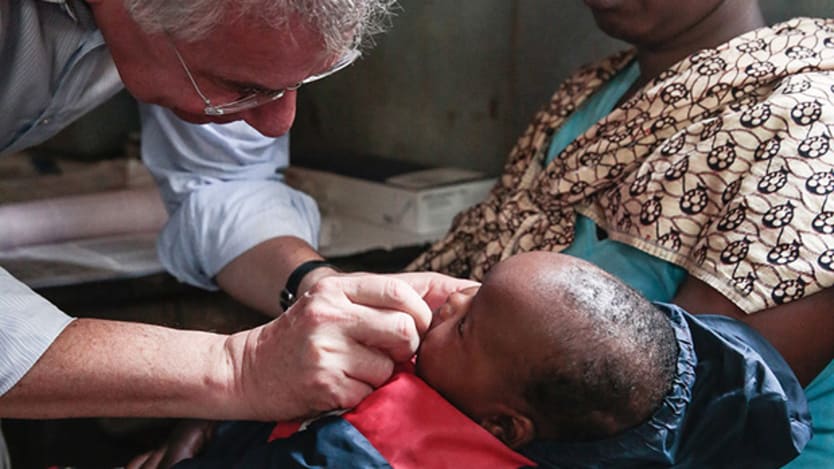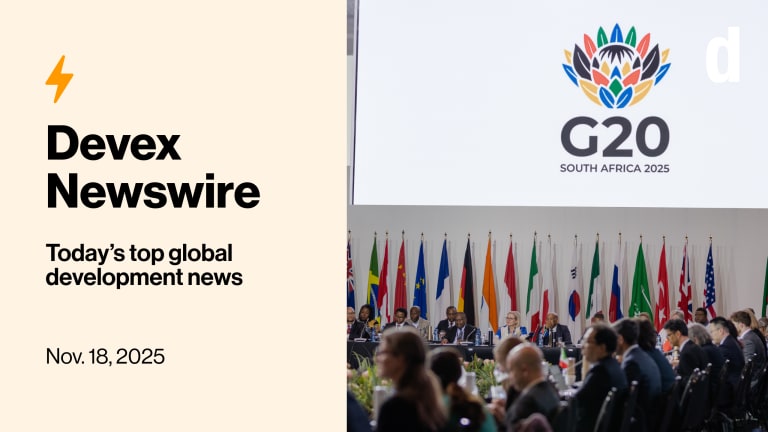
The Ebola crisis has turned the world’s attention to a critical question that we in the global development community have long struggled with: how do we finance important, life-saving work?
This question has become increasingly important as budget-conscious governments struggle to fund worthy programs. Whether the issue is clean water, education, HIV, sanitation, housing or other important causes — from a budgetary perspective, governments sometimes treat these issues as a zero-sum game.
But this does not need to be the case. As a financial markets practitioner who has worked for many years in global development, I have become increasingly involved in impact investment and socially-responsible investments — an innovative way that we can complement traditional government development aid.
SRIs offer opportunities that make financial sense to investors as well as providing tangible social benefits that go beyond the monetary return. As a result, investor interest in SRIs has grown substantially, leading to billions of dollars for projects that strengthen communities, promote health and bring much-needed services to the most vulnerable. It is highly effective aid that — for both governments and investors — is well worth doing.
Proof lies with IFFIm — the International Finance Facility for Immunization — that I am privileged to chair. This remarkable mechanism has helped raise more than $4.5 billion in the capital markets since it was founded in 2006 to support Gavi, the Vaccine Alliance and its mission to save children’s lives and protect people’s health by increasing access to immunization in poor countries.
Since Gavi’s creation in 2000, it has helped vaccinate more than 440 million children and save more than 6 million lives, in partnership with UNICEF, the World Health Organization, the World Bank, civil society, the Bill & Melinda Gates Foundation and other private sector partners — including the investment banks that support IFFIm Vaccine Bonds.
One little known fact about Gavi is that about 40 percent of its funding in recent years has come from IFFIm: Donor governments — there are nine, including the U.K., France, Italy, Norway, Australia, Spain, the Netherlands, Sweden and South Africa — make long-term pledges ($6.3 billion to date) paid over a long period (15, 20 years or more). These legally-binding pledges enable investment banks to sell Vaccine Bonds in the capital markets, supported by the World Bank, IFFIm’s treasury manager.
These bonds, marketed as SRIs with a market-based return, immediately raise available cash for Gavi programs. These funds are put to use when Gavi needs them to buy vaccines or support health systems, not just when a government sends a check. This means many more children are immunized much sooner and it provides enormous flexibility for Gavi to address emergency outbreaks, or to fund a critical new vaccine.
Meantime, recipient countries and vaccine suppliers are able to scale-up immunization programs and vaccine production, confident funds will be available. This leads to better planning and improved efficiency, contributing to aid effectiveness. It even helps bring down vaccine prices, because predictable demand leads to volume purchases.
In this way, IFFIm has helped Gavi save more lives faster and at a lower cost than funding through traditional aid programs. Studies show that this has saved tens of billions of dollars in health costs.
As IFFIm demonstrates, impact investments can be transformative during difficult budgetary times, providing a critical source of effective aid for global development. When questions emerge about how the global community could finance important, life-saving work, such as an Ebola vaccine — keep in mind that there are already real-world solutions available.
Want to learn more? Check out the Healthy Means campaign site and tweet us using #HealthyMeans.
Healthy Means is an online conversation hosted by Devex in partnership with Concern Worldwide, Gavi, GlaxoSmithKline, International Federation of Pharmaceutical Manufacturers & Associations, International Federation of Red Cross and Red Crescent Societies, Johnson & Johnson and the United Nations Population Fund to showcase new ideas and ways we can work together to expand health care and live better lives.
Read more #HealthyMeans articles:
● Ebola: Why we must play the long game
● Strong health systems: The offense to defend against future epidemics?
● Health is a human right, not a commodity
Search for articles
Most Read
- 1
- 2
- 3
- 4
- 5








